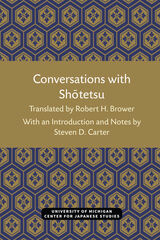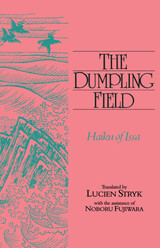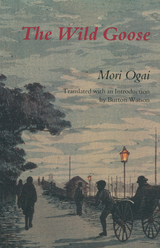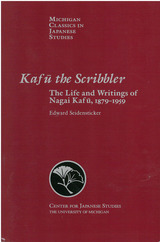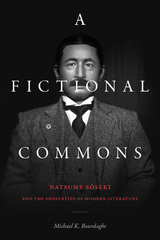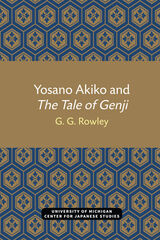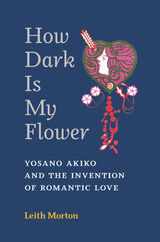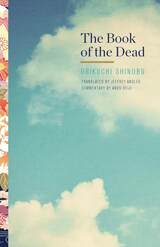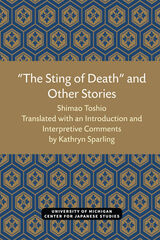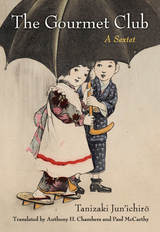The Shiga Hero
University of Chicago Press, 1979
Cloth: 978-0-226-75620-2
Library of Congress Classification PL816.H5Z846
Dewey Decimal Classification 895.634
Cloth: 978-0-226-75620-2
Library of Congress Classification PL816.H5Z846
Dewey Decimal Classification 895.634
ABOUT THIS BOOK | AUTHOR BIOGRAPHY | TOC
ABOUT THIS BOOK
Shiga Naoya (1883-1971), one of Japan's foremost modern writers, is known primarily for his spare, intense short stories. Highly subjective, Shiga's work belongs to the genre of "personal" or "psychological" fiction; much of his raw material is rooted in his own inner experience. His incisive style and disregard of the formal aspects of fiction present a vision of the world that is at times "primitive" and archetypal. Shiga relentlessly explores the vision through the viewpoint of a single central character who appears in almost all his works.
Sibley unifies Shiga's sparse, fragmented narratives by reconstructing the cyclical biography of this imaginary hero. Through an analysis of Shiga's psychoanalytic and mythopoetic approach to fiction, Sibley develops a useful model for the study of personal writers.
In recreating the life of Shiga's hero, Sibley uncovers a close link between the fictional hero and Shiga himself. Sibley finds an important part of Shiga's purpose as a writer was to "psychoanalyze" himself by projecting various personal problems onto this fictional alter ego.
Ten newly translated stories complement Sibley's analysis of Shiga's work. In this second part of the book, one encounters Shiga's hero at various stages of development: as a child facing the early loss of his mother and an uneasy relationship with his cold, distant father; as an adolescent encountering death and punishment; and as an adult searching for solace in solitary contemplation of life. Shiga renders these experiences through a highly textured prose and symbolic vocabulary. Sibley's integral text makes this major Japanese writer accessible to readers of English for the first time in a fascinating and original way.
Sibley unifies Shiga's sparse, fragmented narratives by reconstructing the cyclical biography of this imaginary hero. Through an analysis of Shiga's psychoanalytic and mythopoetic approach to fiction, Sibley develops a useful model for the study of personal writers.
In recreating the life of Shiga's hero, Sibley uncovers a close link between the fictional hero and Shiga himself. Sibley finds an important part of Shiga's purpose as a writer was to "psychoanalyze" himself by projecting various personal problems onto this fictional alter ego.
Ten newly translated stories complement Sibley's analysis of Shiga's work. In this second part of the book, one encounters Shiga's hero at various stages of development: as a child facing the early loss of his mother and an uneasy relationship with his cold, distant father; as an adolescent encountering death and punishment; and as an adult searching for solace in solitary contemplation of life. Shiga renders these experiences through a highly textured prose and symbolic vocabulary. Sibley's integral text makes this major Japanese writer accessible to readers of English for the first time in a fascinating and original way.
See other books on: 1883-1971 | Asian | Criticism and interpretation | Literary Criticism
See other titles from University of Chicago Press

